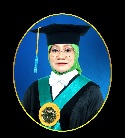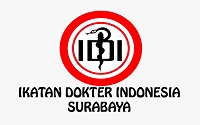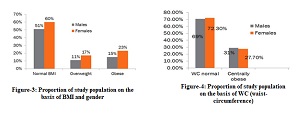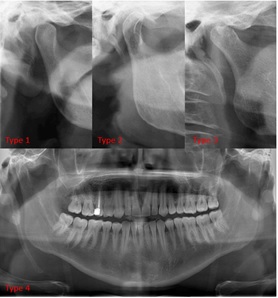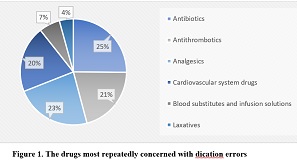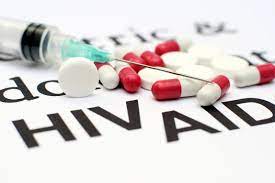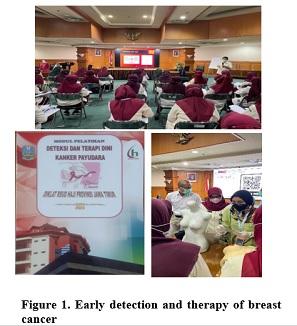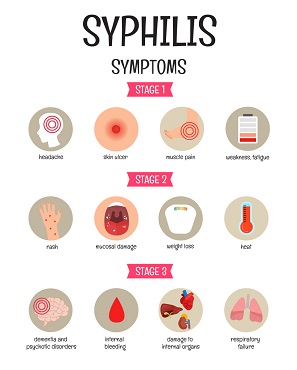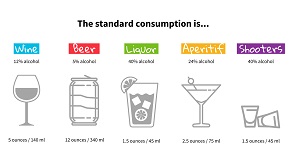The Relationship Between Picky Eater and The Nutrional Status of Preschool Children at Gotong Royong Kindergarden in Surabaya, Indonesia

One of the eating behavior disorders in preschool children is picky eater, a behavior that is picky about food so that children experience limited consumption of a variety of foods. This impacts the nutritional status of children, which can affect their health. Therefore, this study aims to determine the relationship between children's eating behavior disorders (picky eaters) and the nutritional status of preschool children at Kindergarten Gotong Royong Surabaya, Indonesia. This was an observational analytical research with a cross-sectional research design. The sampling method used purposive sampling technique. Data were collected by filling out the CEBQ (Child Eating Behavior Questionnaire) questionnaire and anthropometric measurements of body weight and height, as well as measuring nutritional status using the indicators BB/TB (0-6 months) and BMI/U (>60 months). All data were processed using IBM SPSS v25.0 software with the Spearman rank correlation test. The results of the study showed that 53.6% of preschool children at KB-TK Gotong Royong Surabaya had eating behavior disorders (picky eaters), 46.4% of the children were non-picky eaters, 41.0% had poor nutritional status, and 43.6% had normal nutrition who were mostly non-picky eaters. The bivariate analysis results of the correlation test obtained a p-value of 0.001 (α>0.05). These data showed a relationship between picky eating disorders and the nutritional status of preschool children at Kindergarten Gotong Royong Surabaya.
INTRODUCTION
Nutritional problems in children are still a matter of public concern today This happens because children's eating patterns or eating behavior are still problematic, especially preschool children often experience eating problems. Preschool children often experience eating behavior disorders, which can affect their nutritional status. One of the eating behavior disorders that often occurs is picky eating. Eating behavior disorders are considered normal for some parents because children at preschool age (3-6years) are active consumers. They only choose foods that they recognize and like11.
Children with picky eater behavior have limited food variety by refusing new foods and consuming less protein and fibre, such as fruit and vegetables, than non-picky eater children. Meanwhile, preschoolers are in the "Golden Age", where children are in the growth phase, so that they require adequate nutrition22.
The incidence of picky eaters in China, according to research by Kwon et al (2017)33, was 54% of 1628 picky eater children aged 3-6 years, while in Indonesia, as many as 33.6% of children experienced picky eater eating disorder44, then increased to 44.5%, experienced nutritional deficiencies. In Putri and Muniroh's research (2019), the prevalence of picky eaters in Surabaya was 54.7%55. Picky eater behavior is related to nutritional status. Based on 2018 Riskesdas (Basic Health Research) data, it was found that the prevalence of malnutrition was 17.75%, which still exceeded the reduction target of the 2015-2019 National Medium Term Development Plan (RPJMN)66. In 2020, the only predicted reduction in stunting was 26.9%. In 2021, the nutritional status in Indonesia showed that stunting percentage was 24.4%, wasting 7.1%, and underweight 17.0%. The results of Indonesian Nutritional Status Study (SSGI) found that in Surabaya, East Java, the nutritional status was low on the weight/age index. Weight for age (BB/U): 6,200 cases, height for age (TB/U): 6,722 cases, weight for height (BB/TB): 6,551 cases. Even though there has been a decline, nutritional problems need more treatment so that malnutrition does not increase again77.
Picky eaters can cause nutritional deficiencies in normal and abnormal development conditions, especially micronutrients88. Picky eaters in preschool children cause problems that affect their growth and development. Apart from that, a lack of nutritional intake due to children being picky about food can affect the child's nutritional status. There will be an increased risk of illness, decreased body weight, risk of excess nutrition and even obesity. There can be delays in children's growth and development, decreased intellectual intelligence, digestive disorders and infectious diseases that can cause death99. It can also cause children to experience a lack of red blood cells (anaemia), which can lead to stunting1010. Wijayanti & Rosalina (2018)1111and Nadhirah & Taufiq (2021)1212.showed a significant relationship between picky eater behavior and nutritional status in preschool children.
The aim of this study was to discover more about the relationship between picky eating disorders and the nutritional status of preschool children.
MATERIALS AND METHODS
This study used a cross-sectional design. The minimum number of samples obtained from the Issac & Michael formula calculation was 88 respondents. Sampling was taken using a purposive sampling technique that had been adjusted to the inclusion criteria and exclusion criteria. The inclusion criteria were children aged 3-6 years or 36-72 months, healthy and mothers willing to be respondents, no food allergies, no history of digestive tract infections, especially internal diarrhea, and in the last 1 week, the children were not on cancer treatment or therapy.
The sample obtained was 110 students from a total population of 113 students. The instrument used was a mother and child identity questionnaire, a CEBQ (Child Eating Behavior Questionnaire) sheet containing 35 questions with 8 subscales filled in with a 1-5 Likert scale for each question. This questionnaire had been tested for validity in various countries and had been translated by researchers and tested for validity (0.01-0.04) and reliability (0.937).
Nutritional status was measured by the KEMENKES (ministry of health) standard anthropometric table; the index used was BW/BH (age 36-60 months) and BMI/A (age >60 months). Univariate data analysis is a frequency distribution table, while bivariate analysis used the Spearman rank correlation test with significant correlation is 0,05.
RESULTS
The following is the frequency distribution of child and mother charac-teristics and eating behavior disorders (picky eaters) from 110 respondents. The majority of preschool children were 61-72 months old and male. The average age of the research subjects' mothers was 26-30 years. Most mothers' last education was high school. Mother's employment status was not working. The income level of the parents was high. Based on the number of children, the mothers were included as multiparous mothers, and the number of family members at home was the same size as that of small and medium families.
Most of the students had picky eating behavior, as much as 53.6%. In the cross-tabulation data between charac-teristics and picky eater behavior disorder, it was found that around 47.3% were aged 61-72 months, and the majority were male, with 64 students (58.2%) who experienced picky eating, 53.6%.
No | Child Characteristics | (N) | (%) |
| 1 | Age | ||
36-47 Month | 34 | 30.9 | |
48-60 Month | 24 | 21.8 | |
61-72 Month | 52 | 47.3 | |
| 2 | Gender | ||
Boy | 64 | 58.2 | |
Girl | 46 | 41.8 | |
No | Characteristics Mom | (N) | (%) |
| 1 | Mom's Age | ||
20-25 Years old | 10 | 9.1 | |
26-30 | |||
Lucia. Hubungan Pola Makan Dengan Pertumbuhan Anak Usia 0 - 5 Bulan [The Relathionship Between Dietary Habit and The Growth of Chilfren Aged 1-5 Years]. J Kesehat Madani Med. 2019;10(2):92–9. DOI: 10.36569/jmm.v10i2.77.
Yaqob Qazaryan KS, Kazim Karim S. The clinical link of preschoolers’ picky eating behavior with their growth, development, nutritional status, and physical activity in Iraq/Kurdistan region. Neurol Neurosci Reports. 2019;2(1):1–8. https://www.oatext.com/pdf/NNR-2-115.pdf
Kwon KM, Shim JE, Kang M, Paik HY. Association between picky eating behaviors and nutritional status in early childhood: Performance of a picky eating behavior questionnaire. Nutrients. 2017;9(5). DOI : 10.3390/nu9050463
Handayani C, B SBS, Wahyuni R. Hubungan Perilaku Picky Eater dengan Status Gizi pada Anak Pra Sekolah Usia 2-6 Tahun: Systematic Review [Relationship Between Picky Eater Behavior and Nutrional Status in Preschool Children Aged 2-6 Years: Systematic Review] [Internet]. 2020. Available from: http://repository.poltekkes-kaltim.ac.id/id/eprint/1211https://repository.poltekkes-kaltim.ac.id/1211/2/MANUSKRIP%20CIPTANINGSIH%20OK.pdf
Putri AN, Muniroh L. Hubungan Perilaku Picky eater dengan Tingkat Kecukupan Zat Gizi dan Status Gizi Anak Usia Prasekolah Di Gayungsari [Correlation of Picky Eater with Intake Adequacy and Nutrional Status in Preschool-Aged Children in Gayungsari]. Amerta Nutr. 2019;3(4):232. DOI : 10.20473/amnt.v3i4.2019.232-238
Indonesia Health Profile. 2019. https://www.kemkes.go.id/id/profil-kesehatan-indonesia-2019
Ministry of Health, Rebulic of Indonesia. Buku Saku Hasil Studi Status Gizi Indonesia (SSGI) Tingkat Nasional, Provinsi, dan Kabupaten /Kota Tahun 2021 [Pocket Book of Results of the Indonesian Nutrional Status Study (SSGI) at the National, Provincial, and Regency/City Level]. https://repository.badankebijakan.kemkes.go.id/id/eprint/4899/1/Hasil%20SSGI%20Tahun%202021%20Tingkat%20Kabupaten_Kota.pdf
Rizky D, Erhamwilda, Hakim A. Pola Asuh Orang Tua terhadap Perilaku Sulit Makan Anak pada Keluarga Ekonomi Lemah di Desa Cilame [Parental Feeding Practices and Eating Difficulties in Children from Low - Income Families in Cilame Village]. Bandung Conf Ser Early Child Teach Educ. 2022;2(2):118–24. DOI: 10.29313/bcsecte.v2i2.4291.
Sa’diya LK. Hubungan Pola Makan Dengan Status Gizi Anak Pra Sekolah Di Paud Tunas Mulia Claket Kecamatan Pacet Mojokerto [Relationship Between Diet with Nutritional Status of Pre-School Children in PAUD Tunas Mulia, Claket, Pacet Mojokerto District]. J Kebidanan Midwiferia. 2015;1(2):69–78. DOI: 10.21070/mid.v1i2.350
Sambo M, Ciuantasari F, Maria G. Hubungan Pola Makan Dengan Status Gizi Pada Anak Usia Prasekolah [Correlation between Dietary Habits and Nutrional Status of Preschool Children]. J Ilm Kesehat Sandi Husada. 2020;11(1):423–9. https://jurnalsandihusada.polsaka.ac.id/JIKSH/article/view/316/245
Wijayanti F, Rosalina. Hubungan Perilaku Picky Eater dengan Status Gizi pada Anak Prasekolah TK Islam Nurul Izzah Kecamatan Ungaran Barat Kabupaten Semarang [The Relationship Between Picky Eating Behavior and Nutritional Status in Preschool Children at Nurul Izzah Islamic Kindergarten, West Ungaran District, Semarang Regency]. Keperawatan dan Kesehat Masy. 2018;7(2):175–82. DOI: 10.31596/jcu.v7i2.262
Nadhirah F, Taufiq S, Hernita. Hubungan Perilaku Picky Eater dengan Status Gizi pada Anak Usia Pra Sekolah di Taman Kanak-Kanak [The Relationship Between Picky Eating Behavior and Nutritional Status in Preschool-Aged Children at Kindergarten]. Darussalam Indones J Nurs Midwifery [Internet]. 2021;1(1):30–8. Available from: http://jurnal.sdl.ac.id/index.php/dij/https://jurnal.sdl.ac.id/index.php/dij/article/view/37/32
Cerdasari C, Hadisuyitno J, Sutjiati E, Adelina R. Picky Eater, Asupan Makan, Dan Status Gizi Pada Anak Prasekolah. Med Respati J Ilm Kesehat [Picky Eater, Dietary Intake, and Nutrional Status in Preschool Children] [Internet]. 2022;17(2):75–82. Available from: https://medika.respati.ac.id/index.php/Medika/article/view/645%0Ahttps://medika.respati.ac.id/index.php/Medika/article/view/645https://medika.respati.ac.id/index.php/Medika/article/view/645/pdf_1
Hakiki MIK, Muniroh L. Hubungan Perilaku Picky Eating dengan Status Gizi pada Anak Prasekolah [The Relationship Between Picky Eating Behavior and Nutritional Status in Preschool Children]. J Kesehat Tambusai. 2023;4(3):3183–93. https://journal.universitaspahlawan.ac.id/index.php/jkt/article/view/17317
Darma DC, Wijayanti TC, Purwadi. Ekonomika Gizi: Dimensi Baru di Indonesia [The Economics of Nutrition: A New Dimension in Indonesia]. 1st ed. Yayasan Kita Penulis, 2020.
Angraini DI, Arisandi R, Rosa E, Zuraida R. The relation between “Picky Eating” behavior and nutritional status of pre-school children. J Gizi dan Diet Indones (Indonesian J Nutr Diet. 2022;9(1):49. https://ejournal.almaata.ac.id/index.php/IJND/article/view/1711
Brown CL, Perrin EM. Defining picky eating and its relationship to feeding behaviors and weight status. J Behav Med [Internet]. 2020;43(4):587–95. Available from: https://doi.org/10.1007/s10865-019-00081-w DOI : 10.1007/s10865-019-00081-w
Haryansyah RA. Hubungan Pola Asuh Orang Tua Terhadap Kejadian Pilih-Pilih Makanan (Picky Eaters) Pada Balita di Bantul Yogyakarta [The Relationship Between Parenting Styles and Picky Eating Behavior in Toddlers in Bantul, Yogyakarta]. Repos UMY; 2. https://repository.umy.ac.id/bitstream/handle/123456789/15281/L.%20NASKAH%20PUBLIKASI.pdf?sequence=12&isAllowed=y
Heriyanti H, Lindriani L, Apriani I. Faktor Yang Berhubungan dengan Perilaku Sulit Makan Pada Anak Usia Prasekolah [Factors Associated with Eating Difficulties in Preschool-Aged Children]. Mega Buana J Nurs. 2022;1(1):22–33. https://download.garuda.kemdikbud.go.id/article.php?article=3304705&val=28987&title=Faktor%20Yang%20Berhubungan%20dengan%20Perilaku%20Sulit%20Makan%20Pada%20Anak%20Usia%20Prasekolah
Winarni SS, Purnama NLA. Perilaku Orang Tua dalam Pemberian Makan dan Perilaku Makan Anak Usia 2-5 Tahun [Parental Feeding Practices and Eating Behaviors in Children Aged 2-5 Years]. J Penelit Kesehat. 2017;43–51. https://journal.stikvinc.ac.id/index.php/jpk/article/view/103/44
Fitriana F, Sofyan A, Indanah I, Iswahyuningrum I. Hubungan Antara Peran Orang Tua Dan Gangguan Psikologi Dengan Kesulitan Makan Pada Siswa Sdn 1 Panggang Jepara [The Relationship Between Parental Roles, Psychological Disorders, and Eating Difficulties in Students at SDN 1 Panggang, Jepara]. Indones J Perawat. 2020;5(1):15. https://ejr.umku.ac.id/index.php/ijp/article/view/940/600
Syahroni MHA, Astuti N, Indrawati V, Ismawati R. Faktor-faktor yang mempengaruhi kebiasaan makan [Factors Influencing Eating Habits in Preschool Children (Aged 4-6 Years) in Terms of Achieving Balanced Nutrition]. J Tata Boga. 2021;10(1):12–22. https://ejournal.unesa.ac.id/index.php/jurnal-tata-boga/article/view/37802
Mahmudah A, Masrikhiyah R, Rahmawati YD. Hubungan Pengetahuan Gizi, Aktivitas Fisik, Dan Asupan Makanan Dengan Kejadian Kek Pada Calon Pengantin Di Wilayah Kerja Kua Tarub [The Relationship Between Nutritional Knowledge, Physical Activity, and Food Intake with the Incidence of Anemia Among Prospective Brides in the Tarub KUA Work Area]. J Ilm Gizi dan Kesehat. 2022;4(01):27–35. https://jurnal.umus.ac.id/index.php/JIGK/article/view/787
Saidah H, Dewi RK. Relationship between Basic Feeding Rule Applied by Parents and Eating Difficulties of Children Under Five Years of Age in Kediri, East Java. 2020; https://theicph.com/index.php/icph/article/view/1861
Copyright (c) 2024 Deby Artika Pangastutik

This work is licensed under a Creative Commons Attribution-ShareAlike 4.0 International License.
- The journal allows the author to hold the copyright of the article without restrictions.
- The journal allows the author(s) to retain publishing rights without restrictions.
- The legal formal aspect of journal publication accessibility refers to Creative Commons Attribution Share-Alike (CC BY-SA).
- The Creative Commons Attribution Share-Alike (CC BY-SA) license allows re-distribution and re-use of a licensed work on the conditions that the creator is appropriately credited and that any derivative work is made available under "the same, similar or a compatible license”. Other than the conditions mentioned above, the editorial board is not responsible for copyright violation.


